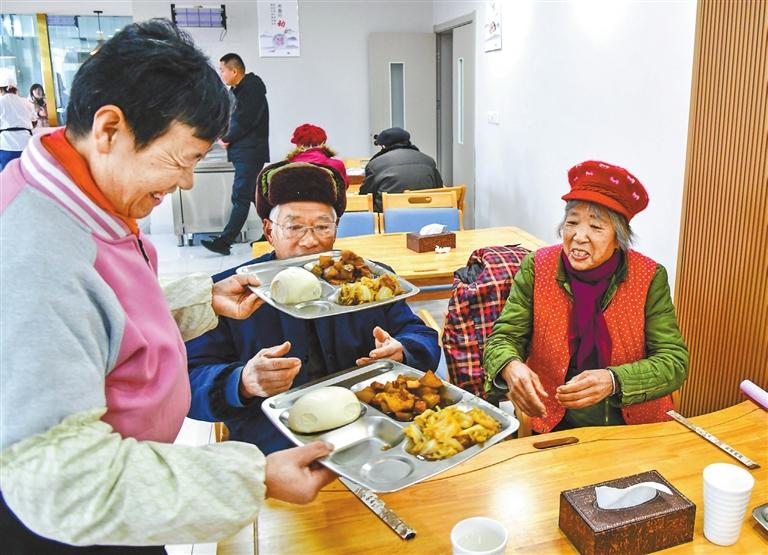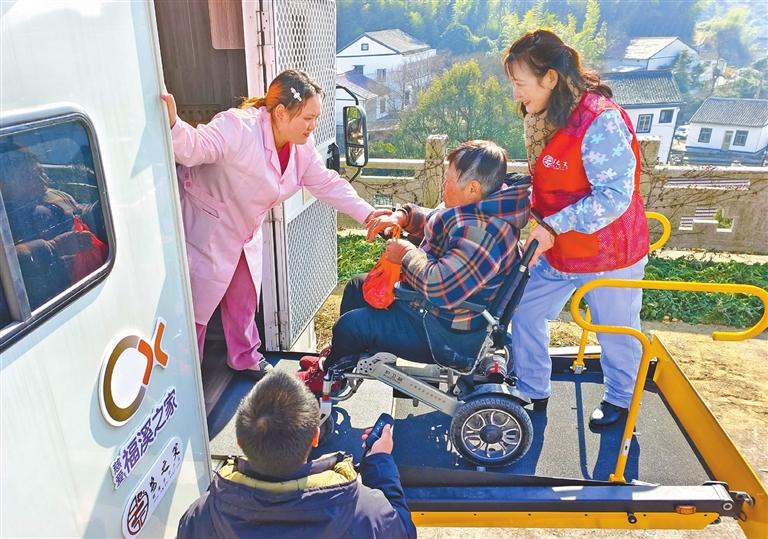

WITH the portable bathtub assembled, three bathing assistants filled the tub with water, tested the water temperature, and spread the non-slip mats. The 75-year-old man waiting to be bathed is a resident of Shenyang, the capital city of Northeast China’s Liaoning Province. He has been bedridden for 10 years due to cerebral thrombosis. They measured the old man’s blood pressure before undressing him under the cover of a soft towel. After finishing all the prep work, they lifted the elderly man with a leather stretcher and slowly placed him into the tub. The simple act of taking a bath can be challenging and risky for the elderly and the disabled people, which has led to the rise of bath aid services, said Wu Ying, 35, a bathing assistant in Shenyang. Wu is among an increasing number of young people who are entering the elderly care industry. According to the China civil affairs’ statistical yearbooks (2019-2022), the number of employees in old-age care facilities below the age 35 has seen an increase. Official data showed that China’s population aged 60 and above had reached 297 million by the end of 2023, accounting for 21.1% of the country’s total. Against the backdrop of a rapidly aging society, China’s State Council has recently released a guideline to develop the “silver economy.” Other governmental departments have echoed the move by introducing measures to improve the well-being of the elderly. Wu noticed a surging demand for bath aid services. He and his co-workers had served nearly 100 senior customers in just half a month in the lead-up to the Spring Festival. A huge, expanding old-age care market has created job opportunities for younger generations. Across China, local governments are scrambling to improve their old-age care systems and increase public services. In Jiangsu Province, for instance, 2,235 nursing homes are offering 408,000 beds to the elderly population. The province has also established 18,000 community elderly care service centers and 8,145 elderly catering centers. In addition, it has offered government-procured door-to-door services to 3.3 million senior citizens. Developing a silver economy addresses the pressing needs of the elderly population today, and provides more investment and job opportunities to the younger generation, said Dang Junwu, deputy head of the China Research Center on Aging. In the Sujiatun District of Shenyang, 63-year-old Wang Yingqiu, who lives alone, has been struggling with simple tasks like getting out of bed due to lumbar disc herniation. Life became much easier after her apartment went through an elderly-oriented remodeling project, during which a nursing bed was fitted. “By pulling the lever, I can adjust the bed to pull myself up,” said Wang. Her 40-square-meter apartment was remodeled to cater to her specific needs. The designer responsible for the project is Sun Tong, a woman born in 1992 and a former kindergarten teacher. “Young practitioners in the elderly care industry are well-trained and better equipped for the tasks than their older peers,” said Sun. In addition to taking on the role of professional caretakers, young people are also bringing vigor to the day-to-day life of the elderly. In the old-age service center in Yingkou City, Liaoning Province, over 100 staff members, the majority being youngsters in their 20s and 30s, spent their Spring Festival holiday offering company to 382 senior residents. The tech-savvy young staffers introduced the elderly residents to the charm of short videos, recording their lives and sharing the videos on social media platforms. “Grandpas and grannies willingly took part in video shooting,” said Chen Gang, director of the center. “The infectious vitality of the young people infused the elderly with a stronger desire to express themselves, move around, and have fun.”(Xinhua) | 
